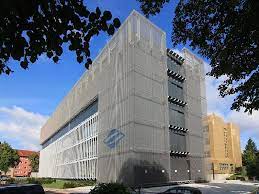Please note the following session of interest at the AOGS2024 Annual Meeting:
AS29 session: Middle Atmosphere Science
at AOGS2024 21st Annual Meeting, in Pyeongchang, Korea, in June 23 to 28, 2024 https://www.asiaoceania.org/aogs2024/public.asp?page=home.asp
Abstract submission deadline: January 02, 2024
The “Middle Atmosphere Science” session has been a recurring feature of the annual AOGS meeting since 2008, encompassing all the disciplines of middle atmosphere dynamics, physics, and chemistry, with time scales ranging from weather to climate. It also includes studies of their interplay with the troposphere and the thermosphere (or the ionosphere). We welcome research findings derived from theoretical studies, observations, data analyses, and numerical model experiments. We particularly encourage submissions that offer novel insights into Middle Atmosphere Science and showcase results from international collaborations and field campaigns. Research topics include, but are not limited to:
– Satellite observations of planetary waves to gravity waves
– Multi-scale interactions between planetary waves and gravity waves in the middle atmosphere
– Wave dynamics associated with Sudden Stratospheric Warmings (SSWs), the Quasi-Biennial Oscillation (QBO), and the Brewer-Dobson Circulation (BDC)
– Theory, observation, modeling, and parameterization of gravity waves
– Troposphere-Stratosphere (TS) dynamical coupling in both tropical and extratropical regions, as well as tropics-extratropics teleconnections
– Processes in the Mesosphere and Lower Thermosphere (MLT) and their interactions with the stratosphere
– Dynamics, physics, and chemistry in the Upper Troposphere and Lower Stratosphere (UTLS), including the Tropical Tropopause Layer (TTL)
– Stratospheric chemistry and ozone recovery
– Multi-scale transport and mixing of trace gases in the Middle Atmosphere and their treatments in coupled Chemistry-Climate Model (CCM)
– Transport and mixing processes associated with spatiotemporal variations in the concentration of air pollutants through the Troposphere and Lower Stratosphere
– Solar influences on the Middle Atmosphere through the variations of Total Solar Irradiance (TSI), Solar Spectral Irradiance (SSI), and high energy particles (HEP)
– Data assimilation techniques applied to the Middle Atmosphere
Invited speakers and (tentative) paper titles:
Dr. Young-Ha Kim (Seoul National U., Korea) “Obliquely Propagating Gravity Waves: Role in the Quasi-Biennial Oscillation Dynamics”
Dr. Yu-Chiao Liang (National Taiwan U., Taiwan) “Attempts to Study the Spatiotemporal Evolution of Sudden Stratospheric Warming Events Using Explainable Deep Learning Approaches”
Dr. Jiankai Zhang (Lanzhou U., China) “Impacts of Stratospheric Polar Vortex on the Wintertime Frontogenesis over the Northern Hemisphere”
Dr. Narendra Sing (ARIES, India) “Understanding of the Distribution of Pollutants in the Himalayan Region through Transport and Mountain Meteorology”
Dr. Dai Koshin (U. Tokyo, Japan) “Long-term Reanalysis of the Middle Atmosphere Produced by JAGUAR-DAS”
Conveners:
Shigeo Yoden (Kyoto University, Japan)
Zeyu Chen (Chinese Academy of Sciences, China) Hye-Yeong Chun (Yonsei University, Korea) Surendra Dhaka (University of Delhi, India) Takatoshi Sakazaki (Kyoto University, Japan)

